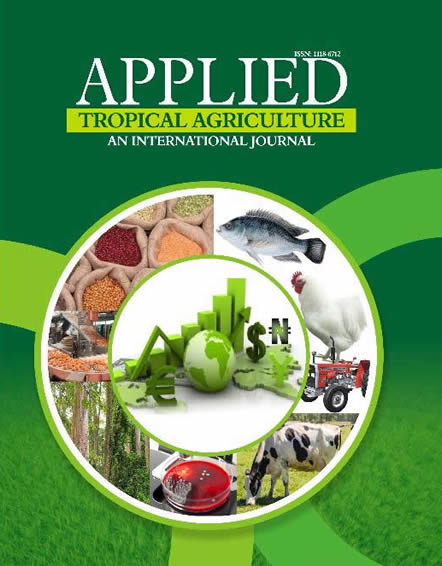This study investigated the indigenous forestry knowledge systems that are for improved forest resources management efforts in Benue State, Nigeria. Data for
this study were collected with structured questionnaire administered on randomly selected 300 households from 10 out of the 23 Local Government Areas
(LGAs) of the State. Two respondents (male and female) were interviewed in each of the 150 households that were selected. Data were analyzed using
descriptive statistics and Analysis of Variance (ANOVA). Tree identification methods, systems for determining flowering periods, and indicators of fruiting
in forest trees constituted the indigenous knowledge systems of forest conservation in the area. For tree identification, respondents used leaf texture, trunk,
flowers, fruits/seeds, leaf size, leaf colour, bark and tree size. Except for leaf size, there were no significant differences (p>0.05) across the ethnic groups.
Identification of flowering periods was done using season, observation, presence of birds, bees, flowers, leaf sprouts among others with only bird indicators
showing significant differences (p<0.05) among the ethnic groups. Indigenous indicators of fruiting included odour and presence of insects (bees, butterflies),
birds, bats and snakes with no significant differences (p>0.05) in all the variables among the ethnic groups. The indigenous forestry knowledge systems should
be integrated with the scientific approaches to produce a synergy that will encourage, stimulate, facilitate and promote effective forest management and indigenous
people's participation.
PAPER TITLE :USE OF SOME INDIGENOUS FORESTRY KNOWLEDGE IN MANAGING FOREST RESOURCES IN SELECTED LOCAL GOVERNMENT AREAS, BENUE STATE, NIGERIA
APPLIED TROPICAL AGRICULTURE | VOLUME 19 NUMBER 1 2014
Paper Details
- Author(s) : Agbidye, F.S.1 , Tee, F.C. & Ogwuche J.A.
- Abstract:


